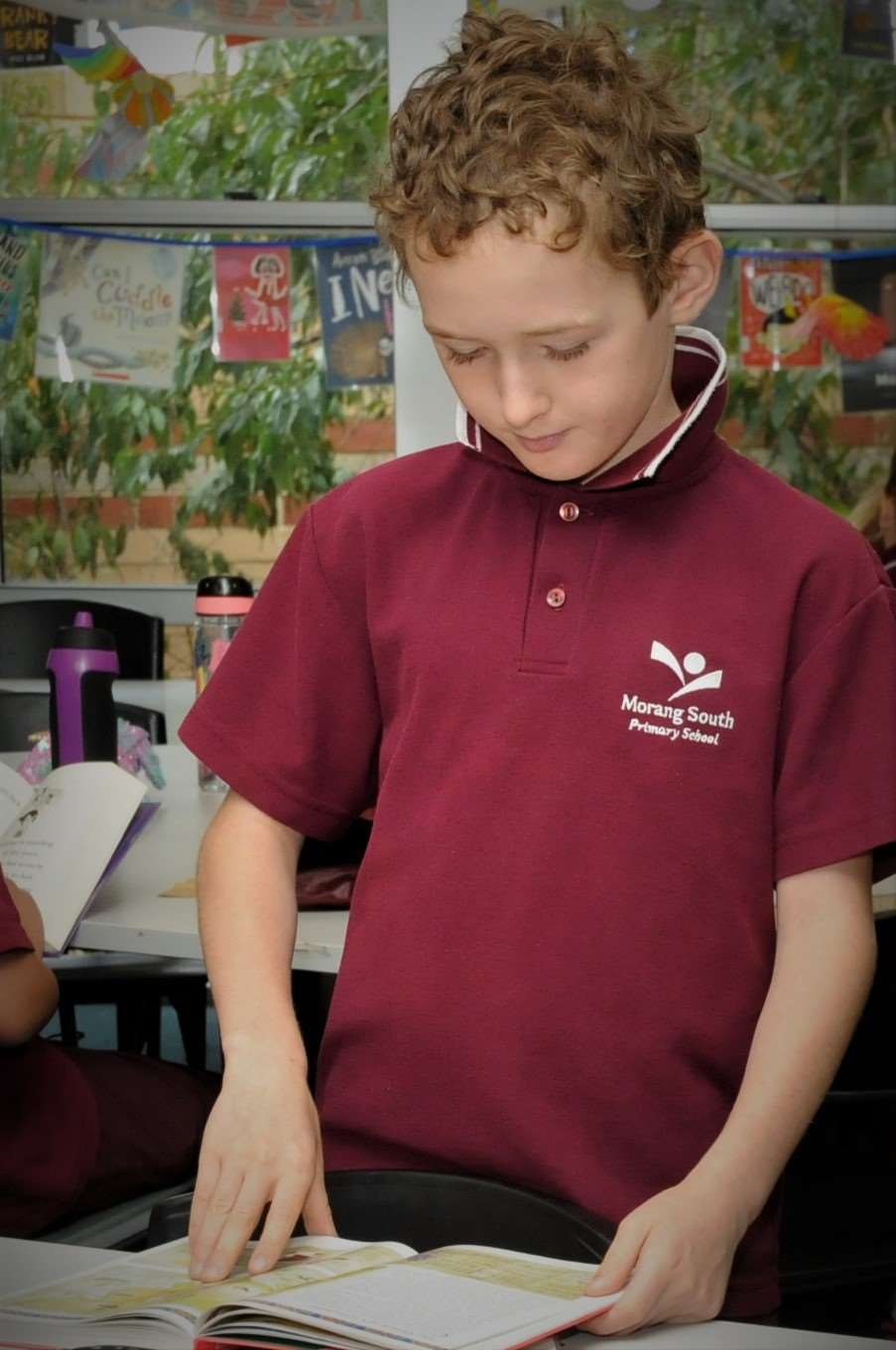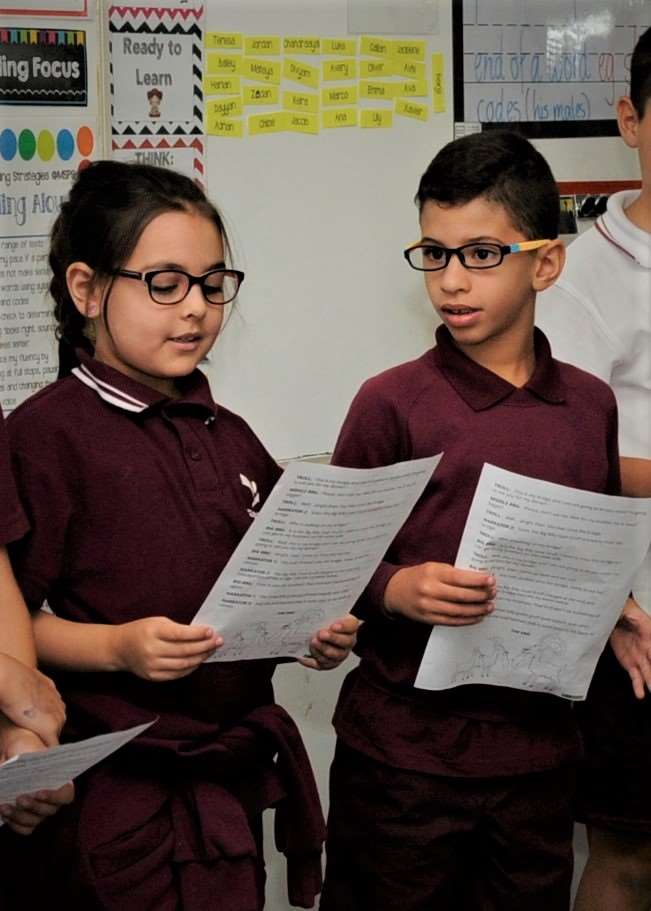English
The study of English is central to the learning and development of all students at Morang South Primary School. It helps create confident communicators, imaginative thinkers and informed citizens. It is through the study of English that individuals learn to analyse, understand, communicate and build relationships with others and with the world around them. The English curriculum is organised in three modes. These are interrelated and the learning in one often supports and extends learning of the others. These are Reading and Viewing, Writing, and Speaking and Listening. In the classroom, literacy programs will frequently draw on more than one of these modes in order to effectively support students’ learning.
Reading and Viewing
Reading and Viewing involves students understanding, interpreting, critically analysing, reflecting upon, and enjoying written and visual, print and non-print texts. Students participate in the daily reading of a modelled text with a clear focus on the Morang South Primary School reading strategies including Getting Knowledge Ready, Vocabulary, Reading Aloud, Paraphrasing, Questioning, Summarising and Analysing. Students work in focus like-ability groups with learning to target their specific needs. Teacher support is provided to small groups and individuals in order to support students and extend their capabilities. Meaningful reflection time is provided in each lesson for students to reflect on their learning, celebrate successes and set new ambitious learning goals.

Writing
Writing involves students in the active process of conceiving, planning, composing, editing and publishing a range of texts. Writing involves using appropriate language for particular purposes or occasions, both formal and informal, to express and represent ideas and experiences, and to reflect on these aspects. Students engage in writing through a variety of platforms including the use of digital technologies such as iPads and laptops. A strong emphasis on the development of oral language and vocabulary is placed during the prewriting phase. Hands-on experiences are often created for the students to make connections from the real-world to written text. Students receive constructive feedback on their spelling, grammar, sentence structures and ideas to make enhancements as their writing develops. A variety of writing genres are explored including narrative, persuasive and informative reports.
Speaking and Listening
Speaking and Listening refers to the various formal and informal ways oral language is used to convey and receive meaning. It involves the development and demonstration of the appropriate oral language for particular audiences and occasions, including body language and voice. It also involves the development of active-listening strategies and an understanding of the conventions of different spoken texts. Speaking and listening skills are integrated into all areas of the curriculum at Morang South Primary School. Students’ speaking and listening skills are developed through classroom learning tasks such as Show and Tell, oral presentations and other set tasks.

Write to Read
Write to Read explicitly teaches students about the 70 phonogram codes (sound/letter correspondences) that make up the English language. Students learn the skills of segmenting and blending these phonogram codes to be able to work out unknown words and use reading strategies to comprehend the meaning in the books and texts they are reading. The Write to Read program also supports our students to develop the skills to become competent at spelling and writing.
At Morang South Primary School, the 70 phonogram codes are broken into three sections as they progress in complexity. They are taught in conjunction with 30 spelling rules in a progressive sequence from Prep to Year 6.

